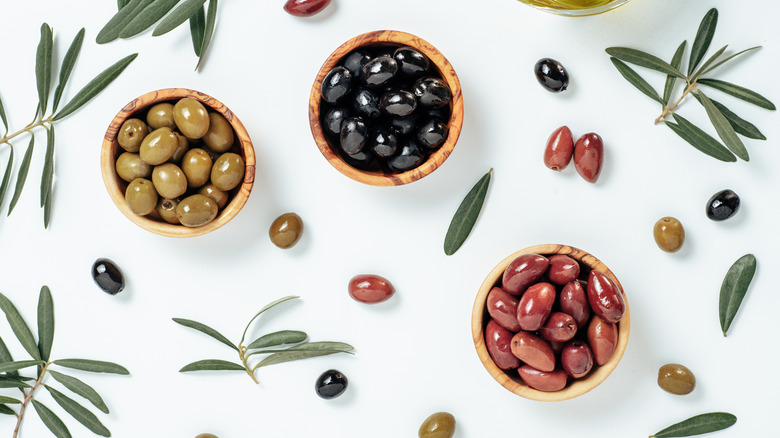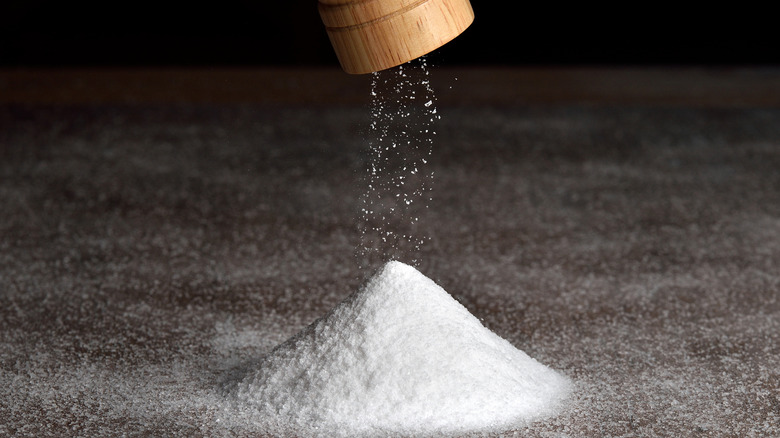When You Eat Too Many Olives, This Is What Happens
When it comes to fatty foods, some have better reputations than others. Some, like olives, contain omega-3 fatty acids. These are usually called "healthy fats" and for good reason. The National Center for Complementary and Integrative Health (NCCIH) states that, according to ongoing research, foods high in these fats seem to moderately improve heart health and may even help improve the symptoms of rheumatoid arthritis.
However, when most people eat olives, they're not just eating the stone fruit itself — they're also eating everything it was processed and packaged with.
As Healthline explains, olives contain a lot more than healthy fats. They contain trace elements of heavy metals and a compound called acrylamide which is currently being studied for a possible link to certain cancers. As frightening as these words sound, however, there is no proven issue with either trace metals or acrylamide in olives. The real danger of eating too many olives comes from something much more common and much harder to avoid.
Beware of the sodium content in olives
WebMD breaks down the nutritional content of green olives and the numbers are a little shocking. Just one green olive contains 110 milligrams of sodium. That might not seem like much, but there are two factors that make this number rather alarming. The first is that few people eat just one olive. Typically when someone eats olives instead of olive oil, they are served as a garnish or as part of a dish that contains many olives, not just one.
More important, however, is how that 110 milligrams stacks up against an adult's daily suggested sodium consumption. As WebMD states, the daily recommended maximum for an adult's sodium intake is 2300 milligrams. EatingWell makes the comparison very clear by pointing out that two to three black olives can make up almost 5% of a person's daily recommended intake.
Exceeding the recommended daily sodium intake level now and then isn't really a problem. So if you love olives, feel free to indulge every once in a while. But regularly eating high levels of sodium can have devastating effects on your health. The American Heart Association states that a diet high in sodium is linked to stroke, stomach cancer, heart enlargement, kidney disease, and headaches among other issues. So if you make olives part of your diet, keep an eye on the sodium level to avoid the unhealthy pitfalls of eating too many.


